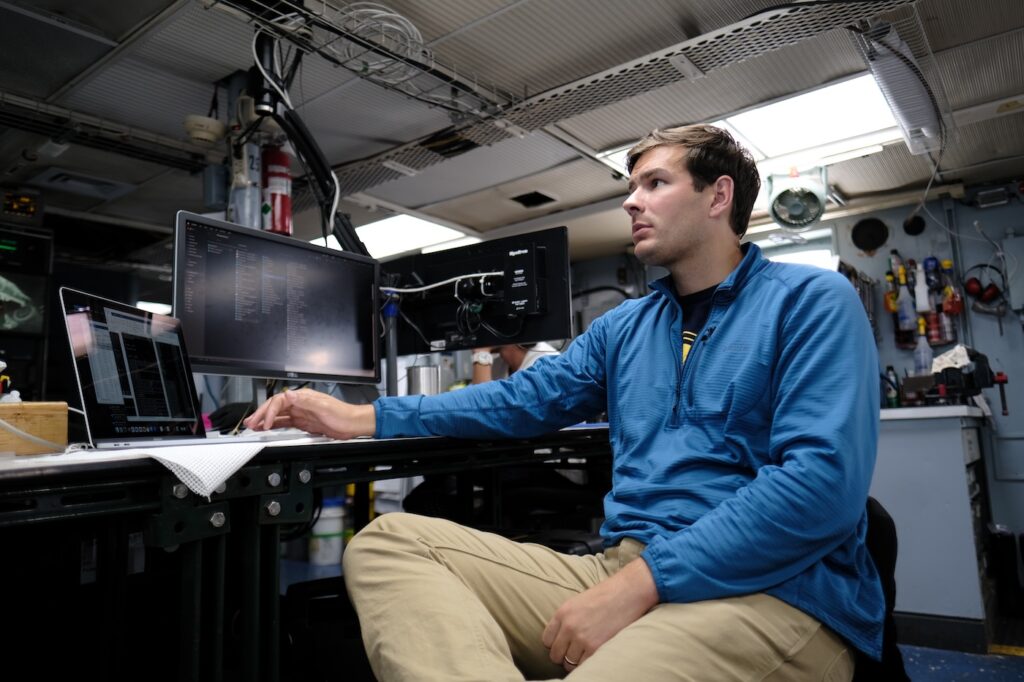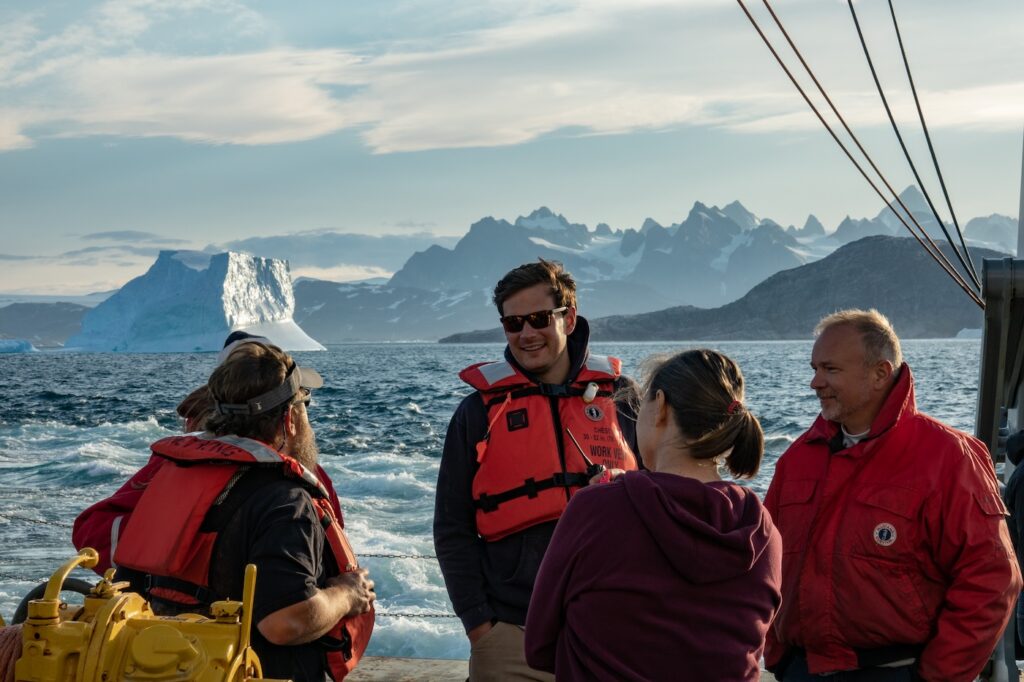
The University of Georgia’s Skidaway Institute of Oceanography (SkIO) is proud to welcome physical oceanographer Nicholas Foukal to its faculty. Foukal will begin his role as an assistant professor on August 1, 2024.
Foukal is leaving his position at the Woods Hole Oceanographic Institution (WHOI), where he has served as an assistant scientist in the Department of Physical Oceanography.
“I am excited to join the faculty at Skidaway and get started,” said Foukal. “In many ways, I will be continuing what I began at WHOI and will keep the positive momentum going that I had built there on the research front. But in other ways, this will be a new chapter in my career as I begin a new role in a university setting and put more emphasis on teaching and mentoring alongside my research.”

Foukal received his doctorate in earth and ocean sciences from Duke University, his master’s in oceanography from the University of Maine, and his bachelor’s in engineering sciences modified with economics from Dartmouth College.
“I am pleased to welcome Dr. Foukal to the faculty of the UGA Skidaway Institute of Oceanography,” said SkIO Director Clark Alexander. “His research on high-latitude current systems brings exciting, new expertise to the institute and expands the opportunities for interdisciplinary science.”
Foukal’s research focuses on ocean circulation, including where, when and how the ocean stores and transports its heat. The movement of the water within the ocean is important, as it helps regulate the Earth’s climate, influences weather patterns, impacts the health of marine ecosystems and more.
Foukal has studied the Atlantic Meridional Overturning Circulation, the Gulf Stream, the dynamics of the subpolar gyre, and, most recently, how fresh water from Greenland, the Arctic and the Labrador Shelf off eastern Canada impacts the North Atlantic circulation.
His work off the southern coast of Greenland involved deploying surface drifters, which are small floating devices equipped with GPS trackers, to track the movement of the meltwater coming off the country’s coast. Most recently, Foukal deployed surface drifters, along with moorings, which are anchored to the ocean floor and collect speed and direction data, on the Labrador Shelf, aiming to understand water circulating from the eastern coast of Canada.
Foukal will continue this work in his position at SkIO. He will also teach undergraduate and graduate courses within the UGA Franklin College of Arts and Sciences’ Department of Marine Science.
About SkIO
The UGA Skidaway Institute of Oceanography (SkIO) is a multidisciplinary research and training institution located on Skidaway Island near Savannah, Georgia. The Institute was founded in 1967 with a mission to conduct research in all fields of oceanography. In 2013, SkIO was merged with the University of Georgia. The campus serves as a gateway to coastal and marine environments for programs throughout the University System. The Institute’s primary goals are to further the understanding of marine and environmental processes, conduct leading-edge research on coastal and marine systems, and train tomorrow’s scientists. For more information, visit www.skio.uga.edu.


